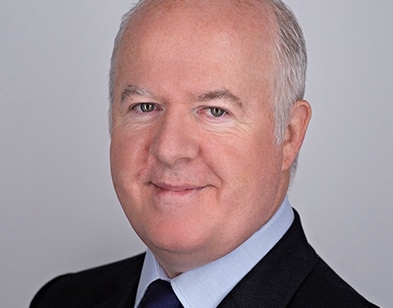Boundaries are essential for all sorts of good reasons. They make things clear to everyone involved what’s the right side of the line and what’s not. Blurred lines are best avoided.
Boundaries are at the core of UK financial regulation. I’ve lost count of the number of times the FCA has referred over the years to the importance its regulatory boundaries, or the perimeter as it likes to call it.
Financial products and services are either regulated - inside the boundary - or not regulated and, therefore, outside.
Products outside the boundary are not regulated and this can mean misery for investors who put their savings into unregulated products that fail. Many of the worst investment product mis-selling sagas of the last few years, and yes I am referring to mini-bonds, have been due to investors believing their products were regulated when they were not.
In a letter to the Treasury Committee this week about why it was not going to take further action against two firms involved in the £46m Blackmore Bonds collapse the FCA said a thorough investigation had concluded that much of what Blackmore provided to investors was outside its regulatory boundary and therefore not covered fully by regulation.
With this crucial importance given to regulatory boundaries by the regulator it seems almost lunatic for the FCA to try to ‘blur’ the lines between advice and guidance, as it announced today in DP23/5 it intended to do.
Opening this can of worms can, in theory, only presage a whole raft of new problems about so-called ‘simplified advice’ or guidance, if and when it arrives.
So am I against the whole idea?, well actually not. I can see the benefits in giving more people of modest means access to at least some support but I can also see inherent dangers. Financial Planners and adviser trade bodies will need to read through the small print of the proposals very carefully to ensure the advice market is not destabilised by a bunch of new players offering ‘cut price’ financial advice which is neither really guidance nor advice.
There are good reasons for 'freeing up' the tightly regulated advice market from its restrictions, at least as far as the Treasury is concerned and I also expect many bigger providers will be very interested in new opportunities. Loosening the rules could well spur new economic activity, which will please the Treasury.
A good example, and perhaps a clue of what might happen, comes in the FCA's proposals on cash deposits. The FCA / Treasury suggests that it could be beneficial for providers such as banks and deposit takers to point out to people with large cash deposits that they could make their money ‘work harder’, and avoid some of the corrosive effects of inflation on their spending power, by shifting their money into an equity or bond-based product.
Sounds like a wise move but will some savers be encourage to take more risk than they really need or understand?
Certainly getting people to make their money work harder and take some sort of cut-down advice to improve their confidence in planning for retirement or long-term investing is no bad thing and it’s hard to be against this laudable aim but it needs to be understood by consumers that putting your money in a National Savings account is not the same as shifting your cash into an equity-based ISA. What happens if savers get nervous when their funds drop by 25%. Who will be there to pick up the pieces? Perhaps not the ‘limited advice’ provider who suggested the move in the first place.
While I am sceptical, there is no doubt that giving millions more people access to some form of limited financial guidance or simplified advice will be a broadly positive move.
The fact is that, according to the FCA’s Financial Lives Survey, only 8% of people received full financial advice in 2022. With the number of regulated advisers pretty static, that’s not going to change. I would also hazard a guess that over the last 10 years as more advisers and planners have shifted their focus towards wealthier clients the number of people able to afford financial advice has gone down.
Financial Planners do a great job but they are simply not mass market and are never likely to be.
While these so-called boundary lines between advice and guidance are set to be blurred, it will be up to the FCA to ensure that the distinction between advice and guidance is still clear and consumers know exactly what they are getting. A plethora of new advice offerings may be on the way but the FCA needs to be very watchful to ensure that consumers are not misled.
For Financial Planners the prospect is that some new avenues could open up and some of these new 'guided' consumers could seek full financial advice.
All of this is indeed a market shake up of potentially major proportions and it could be the tonic the advice market needs, if it is correctly implemented. Just watch those blurred lines.
• If you are not already registered for Financial Planning Today please sign up now to view more stories. Just click on a couple of stories to see the pop-up registration box. You can also register to find out more about our range of subscription packages which include the highly respected Financial Planning Today magazine.
> Top Tip: Follow Financial Planning Today on Twitter / X @_FPToday for breaking news and key updates
Kevin O’Donnell is editor of Financial Planning Today and a journalist with 40 years of experience in finance, business and mainstream news. This topical comment on the Financial Planning news appears most weeks, usually on Fridays but occasionally other days. Follow @FPT_Kevin

